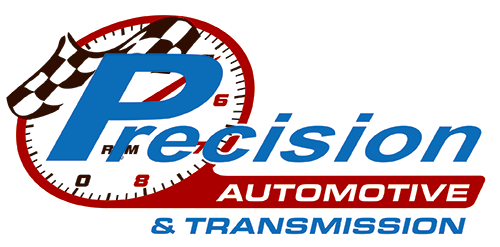Your vehicle’s transmission is one of its most critical components, responsible for shifting gears and ensuring your car runs smoothly. Without a properly functioning transmission, your car’s performance can suffer significantly, and in worst-case scenarios, it may become inoperable. Transmission issues can start as minor inconveniences but, if left unaddressed, can lead to costly repairs or even complete transmission failure. Recognizing early warning signs can save you time, money, and frustration. Below are the top five signs that indicate you may need a transmission repair.
Unusual Noises While Shifting Gears
One of the earliest and most noticeable signs of transmission trouble is hearing unusual noises while shifting gears. A well-functioning transmission should operate smoothly and quietly. If you hear grinding, whining, or clunking sounds, it could indicate internal damage or fluid-related issues. Manual transmissions may produce grinding noises if the clutch is worn out, while automatic transmissions can emit whining sounds if there is a lack of proper fluid circulation. These sounds often indicate that friction between metal components is increasing, leading to wear and tear. Ignoring these noises can lead to more significant transmission problems and necessitate costly transmission repair services. Addressing the issue early on with a professional inspection can help prevent further damage.
Slipping Gears and Delayed Response
Another telltale sign of transmission trouble is when your vehicle experiences gear slipping or delayed response while accelerating. A slipping transmission occurs when your car unexpectedly changes gears or struggles to stay in the appropriate gear. This can result in a sudden loss of power, making it dangerous to drive, especially in high-traffic areas or on highways. In automatic transmissions, you might notice a delay when shifting from park to drive or reverse. In manual transmissions, you may feel a lag when trying to engage a gear. These issues often stem from worn-out clutch components, low transmission fluid levels, or internal transmission wear. When left unchecked, gear slipping can lead to a complete transmission failure, requiring extensive transmission repair or even replacement.
Leaking Transmission Fluid
Transmission fluid plays a crucial role in keeping your transmission lubricated and functioning properly. It also helps maintain optimal operating temperatures by reducing friction and preventing overheating. If you notice reddish-brown puddles forming underneath your vehicle, it could be a sign of a transmission fluid leak. Leaks can occur due to a damaged seal, a cracked transmission pan, or worn-out gaskets. Low transmission fluid levels can lead to overheating and internal component damage, making it essential to address leaks as soon as they are detected. Regularly checking your transmission fluid levels and condition can help you avoid more extensive transmission repair costs. If you suspect a leak, consult a professional mechanic to identify the source and prevent further damage.
Burning Smell Coming from the Transmission
A burning smell coming from your vehicle is never a good sign, and when it’s related to your transmission, it often indicates overheating. Overheating transmissions can result from low or degraded transmission fluid, excessive friction, or internal damage. If left unaddressed, overheating can cause severe damage to transmission components, leading to costly repairs. The smell is typically caused by burnt transmission fluid, which may appear dark brown or black instead of its usual reddish hue. Regularly changing your transmission fluid according to your manufacturer’s recommendations can help prevent overheating and prolong the life of your transmission. If you detect a burning smell while driving, it’s crucial to have your vehicle inspected immediately to determine if a transmission repair is necessary.
Warning Lights and Dashboard Indicators
Modern vehicles are equipped with sophisticated computer systems designed to alert drivers of potential issues before they become major problems. One of the most common indicators of transmission trouble is the check engine light or a dedicated transmission warning light. While the check engine light can illuminate for a variety of reasons, it is essential to have your vehicle’s diagnostic codes scanned to determine if the transmission is at fault. If your vehicle displays a transmission-specific warning light, it means the system has detected an issue that requires immediate attention. Ignoring these warnings can lead to further damage, increasing the likelihood of costly transmission repair. A professional diagnostic test can pinpoint the exact problem and help you take the necessary steps to restore your transmission’s health.
Taking Preventative Measures to Avoid Transmission Failure
Catching transmission problems early is key to avoiding expensive repairs and unexpected breakdowns. Routine maintenance, such as regularly checking transmission fluid levels, changing the fluid as recommended, and addressing minor issues before they escalate, can significantly extend the life of your transmission. Additionally, driving habits play a role in transmission health. Avoiding excessive acceleration, sudden braking, and heavy towing without proper precautions can reduce wear and tear on your transmission. If you notice any of the signs mentioned above, seeking professional transmission repair services as soon as possible can help you avoid more significant problems down the road. By staying proactive, you can ensure your vehicle remains in peak condition and continue driving safely for years to come.
Need a Reliable Auto Repair Shop Near You?
Here at Precision Automotive & Transmission, we take pride in keeping your vehicle running smoothly with expert care and top-quality service. Whether you need routine maintenance, major repairs, or diagnostics, our ASE-certified technicians are here to help. Family-owned and operated since 1977, we’ve built our reputation on trust, reliability, and award-winning service. Don’t wait until a small issue becomes a big problem—give us a call or stop by today and experience the Precision Automotive & Transmission difference for yourself!
